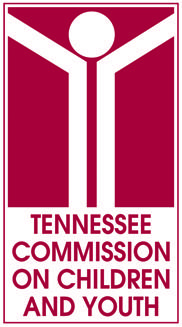 A report released last week by the Tennessee Commission on Children and Youth (TCCY) calls for the state’s Department of Children’s Services (DCS) to step up its efforts in meeting the needs of young people with psychological and other health problems. The assessment, “Kids Count: The State of the Child in Tennessee,” finds that more than half of Tennessee’s foster care youth have mental illnesses, while approximately nine-out-of-10 youth in the state’s juvenile facilities are estimated to have mental health issues.
A report released last week by the Tennessee Commission on Children and Youth (TCCY) calls for the state’s Department of Children’s Services (DCS) to step up its efforts in meeting the needs of young people with psychological and other health problems. The assessment, “Kids Count: The State of the Child in Tennessee,” finds that more than half of Tennessee’s foster care youth have mental illnesses, while approximately nine-out-of-10 youth in the state’s juvenile facilities are estimated to have mental health issues.
Earlier this year, a national Annie E. Casey Foundation report listed Tennessee as the 10th worst state for “food hardship” among children, with both Knoxville and Memphis ranked among the 25 worst metro areas for food insecurity.
According to the TCCY report, the combination of psychological and economic hardships, in conjunction with diminishing resources, has left the state’s DCS incapable of handling its current caseload.
Adding to the state’s difficulties, the report reads, is a lack of prenatal care in some of Tennessee’s rural counties, as well as general shortage of medical professionals in some of the state’s more remote communities. In all, about a quarter of the state’s children live below the poverty line, with the rate jumping up to 50 percent in some counties.
Per the report, more than a quarter of children removed by DCS in the 2011-2012 FY were taken due to “behavior problems,” while about one-fifth were removed due to either abandonment or “caregiver substance abuse.”
Roughly 8 percent were removed due to sexual abuse or caregiver incarceration, the TCCY state, while 18 percent were taken due to either neglect or physical abuse.
The report urges the state’s child welfare agencies to engage in a coordinated effort to address Tennessee’s multitudinous youth issues.
“The issues regarding severe child abuse cannot be adequately addressed by DCS, TCCY, child advocacy centers, law enforcement or any one organization or community agency or individual,” the report concludes. “All stakeholders must come together to address this societal problem in a coordinated and concentrated manner.”

